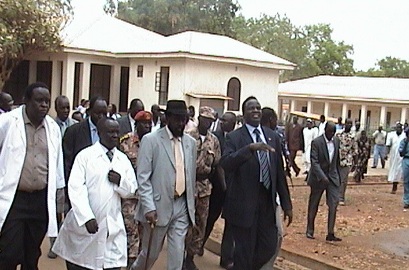South Sudan’s Juba hospital resumes power supply
May 27, 2016 (JUBA) – South Sudan’s main hospital, Juba Teaching Hospital, has resumed power supply after experiencing more than two weeks of power outage, forcing doctors and other health practitioners to use torches, candles and oxygen cylinder.

The development forced some government officials, including health minister, Riek Gai Kok, to make statements attempting to absolve himself from any responsibility and depicted officials in other relevant institutions such as the ministry of finance and economic planning and the ministry of electricity and dams as well as the ministry of petroleum and the national oil corporation as being responsible for the outage.
Reacting to the development, President Salva Kiir, following the public outcry, decided to order a supply of one year fuel to the hospital to resume normal operation while his government explores permanent ways to address the matter so that it does not have to recur in future.
“These are times when the head of state takes a leadership decision and intervenes decisively. The issue of power shortage at Juba teaching hospital was creating commotions among members of the public and creating unnecessary situation between colleagues, institutions and the patients,” a presidential aide told Sudan Tribune on Friday.
“Now the thing has been addressed. The power supply resumed yesterday and the hospital is now working normally. You can go and see it for yourself now,” he proudly explained.
The hospital staff members, according to a source whose assignment does not allow him to speak to the media, have also received one month payment to allow them wait for the rest of the remaining months.
“The staffs have received one month pay. They have received the payment for the month of April. This is a result of the decision of the president to pay the lecturers of the public universities who have gone on strike and the hospital workers who were considering to also go to on strike,” said the official.
(ST)
